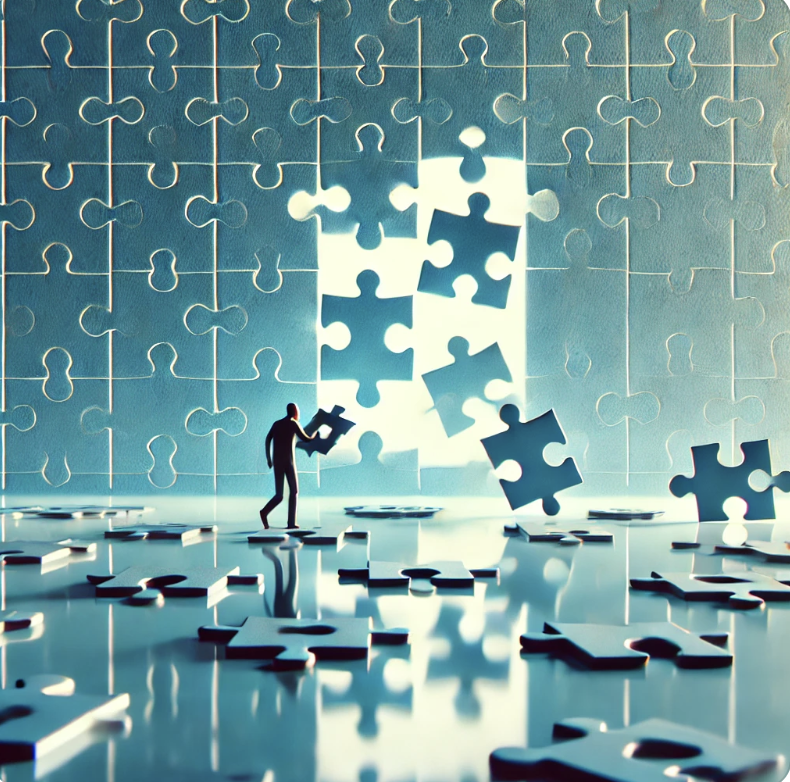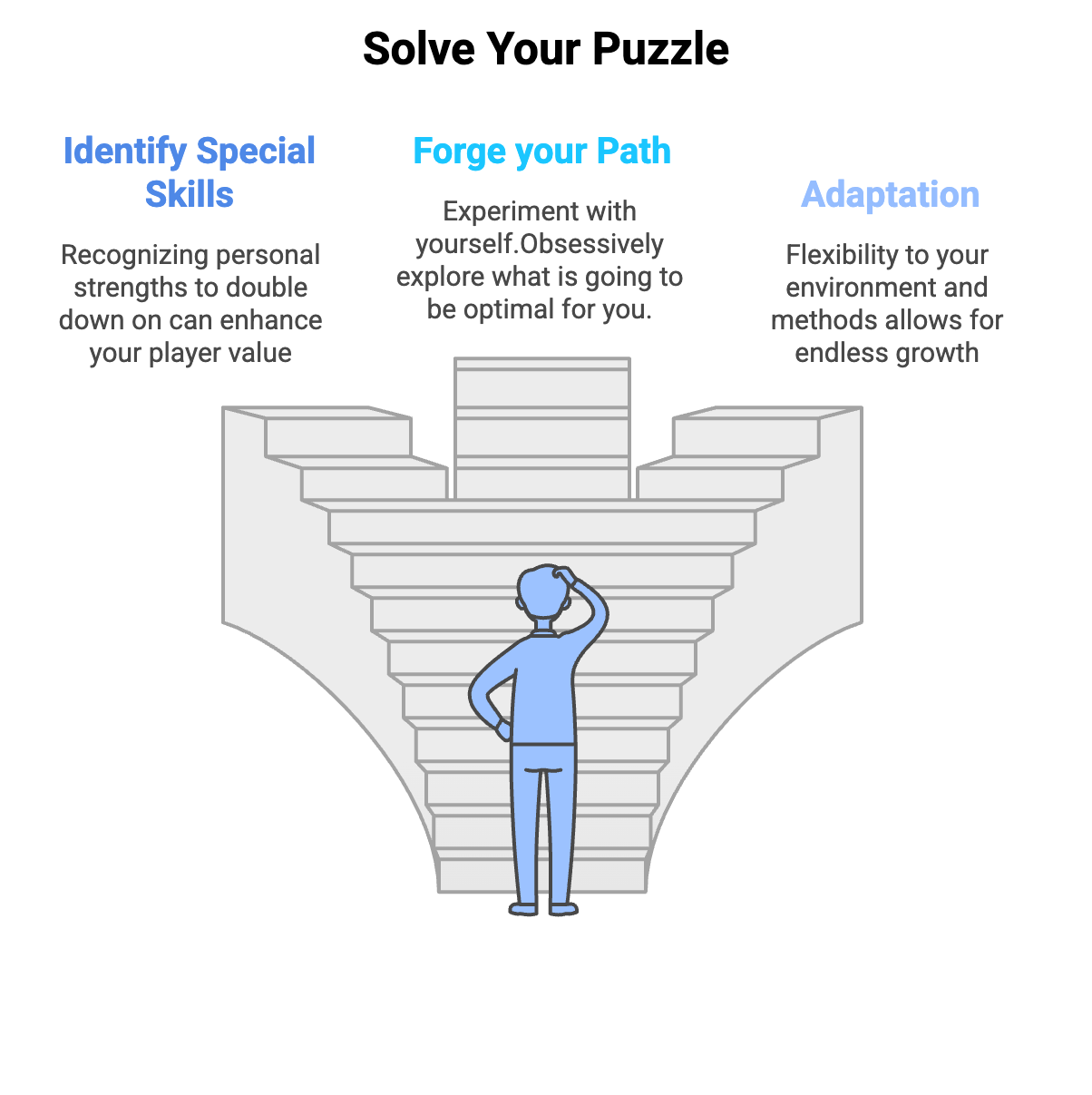You Copy. You Fail

There is no formula. No blueprint. No guaranteed path. If copying greatness made you great, everyone would be.
Performance is unique to you—what works best for one player won’t necessarily work for another. The skills that will get you to the next level will be personal to you.
There is no set path to follow or footsteps to walk in—your journey is your own. What’s necessary for you to “make it” will be different from anyone else.
Your performance is your puzzle to solve.

- X tool might work wonders for you but fail for others.
- X diet might help you thrive but have no effect on someone else.
- X training might transform your game but lead to minimal gains for another.
For example, skating 6x a week may benefit some players, but others might perform better with more rest.
It’s a solo journey to discover what works and translates best for you. You can watch every shot Auston Matthews has ever taken, study his mechanics down to the finest detail, and replicate them perfectly—but skill isn’t copy-paste. His shot is built on his body, instincts, and thousands of unseen decisions—yours will be too.
You can train the exact same way as Connor McDavid, follow his schedule, eat his diet, and prepare with his routine, yet that won’t make you McDavid. Everybody's performance puzzle is unique to them.

Your development is your responsibility. The limits of coaches and trainers are clear: they provide general guidance, but their advice is often broad and lacks precision. Transformational progress comes from training that is specific to you.
Precision is potential; it can be the difference between wasted effort and elite performance. Think of water flowing freely from a garden hose—it spreads out, loses force, and barely washes away dirt. But take that same water and force it through a tiny, precise nozzle, narrowing its path to a razor-thin stream. Now, it has the power to cut through diamond. Training works the same way.
The key is identifying the skills and plans that will translate best for you—the ones that bring you closest to your goals and help you become the player you want to be.

If you have a high-level player comparison (an NHL player with a similar style you admire or want to emulate), ask yourself:
What are their top-level abilities that make them irreplaceable?
Are those the same skills that will translate best to your game?
As a shorter forward with aspirations to be a fast, lethal, and versatile offensive force, I focus on specific skills that have the greatest impact on my performance: Improving my hockey IQ, mastering speed control with the puck, and deepening my understanding of my own mental limitations.
These skills provide the highest return on investment given my goals and abilities. This clarity helps me guide my training to be as effective and impactful as possible.
By contrast, a defenseman might focus on mastering gaps, angles, pivots, and defensive IQ.
I’d rather train half as much if it meant I got to do so with intentionality and specialization in the areas that best translate for me.
If you get this right, you’re not just hoping for success—you’re demanding it from the environment in which you compete.
Piece by Piece
No path is drawn, no map is made,
Your puzzle waits, piece yet laid.
What fits for one may not for you,
The picture forms with what is true.
.png)